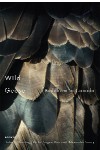
Wild Geese: Buddhism In Canada
Edited By John S. Harding, Victor S. Hori and Alexander Soucy
McGill-Queen`s University Press
$29.95
paper
464pp
978-0-7735-3667-8
Hori skillfully presents the “us” and “them” mentality of Western convert versus Asian ethnic Buddhist as a fallacious dichotomy that grows more complex as subsequent generations of Buddhists become integrated into Western culture. Hori perceptively notes that many Western converts to Buddhism raise “dharma brats,” whereas many third-generation Chinese immigrants do not practice Buddhism at all. The question translates further into religious devotion and consistency. The Western “night-stand Buddhist” sits up late reading Pema Chödrön and Chögyam Trungpa. More committed practitioners may jump from one tradition to another, attending Zen meditation sessions one week, meeting with a Theravada teacher the following week, and reading literature from the Dalai Lama the next.
Several essays address these diverse Buddhist traditions across Canada, mapping their spread across the provinces and the ways in which they intersect. Terry Watada traces the lineage of Buddhism in Canada from its Japanese roots going back to 1905, when Buddhism was regarded with suspicion and intolerance, to the blow taken by the Japanese Buddhist population during World War II, up to the present day. Traditions covered include Jodo Shinshu, Shambhala, Fo Guang Shan, Lao, and the more popular Tibetan and Zen forms. The anthology often highlights the two-way cultural exchange between East and West and the evolution of Buddhism on both sides of the globe. The distinction may be best expressed as one not of race or immigration or language, but of practice.
Canadian Zen Buddhism, for instance, emphasizes meditation, traditionally a less prominent part of the practice, and downplays the customary importance of karma and rebirth. Many subjects interviewed for Patricia Campbell’s Zen article engaged in “religious shopping.” Peter, a fifty-six year old librarian, says, “most accomplished Buddhists or authorities will say: choose a tradition or choose a practice and follow it. But what I’ve been doing over the last several years is picking and choosing, finding what works for me and following that.” The result is a pastiche of religious traditions that may ultimately dilute the power of discrete religious association in favour of an amorphous, continuously evolving Buddhist tradition.
The final chapters on spiritual leader Albert Low – who now heads the Montreal Zen Centre – and practitioner Suwanda H.J. Sugunasiri will appeal more to the non-scholarly reader. They present a tangible, concrete face to Buddhism and fit into a coherent narrative structure. The winding road of Low’s spiritual crises and breakthroughs makes for a less formal, more compelling portrait of Buddhist spiritual life in Canada, and Sugunasiri’s life story serves as “a prism through which the history of Buddhism in Canada comes into focus.”
There’s a lot to digest in a dense 400-page compilation. For the casual reader seeking a better understanding of Buddhism, the anthology brings more questions than answers. Wild Geese critically deconstructs the concepts presently applied to Buddhism in the West and builds a foundation for further study. The anthology ties the culture of Buddhism in Canada to the international evolution of Buddhism. As a sweeping, if not comprehensive, analysis of the Buddhist institutions in Canada, and a call to elucidate issues standing in the way of further research, it is a fine start to a burgeoning field of study.
mRb





0 Comments